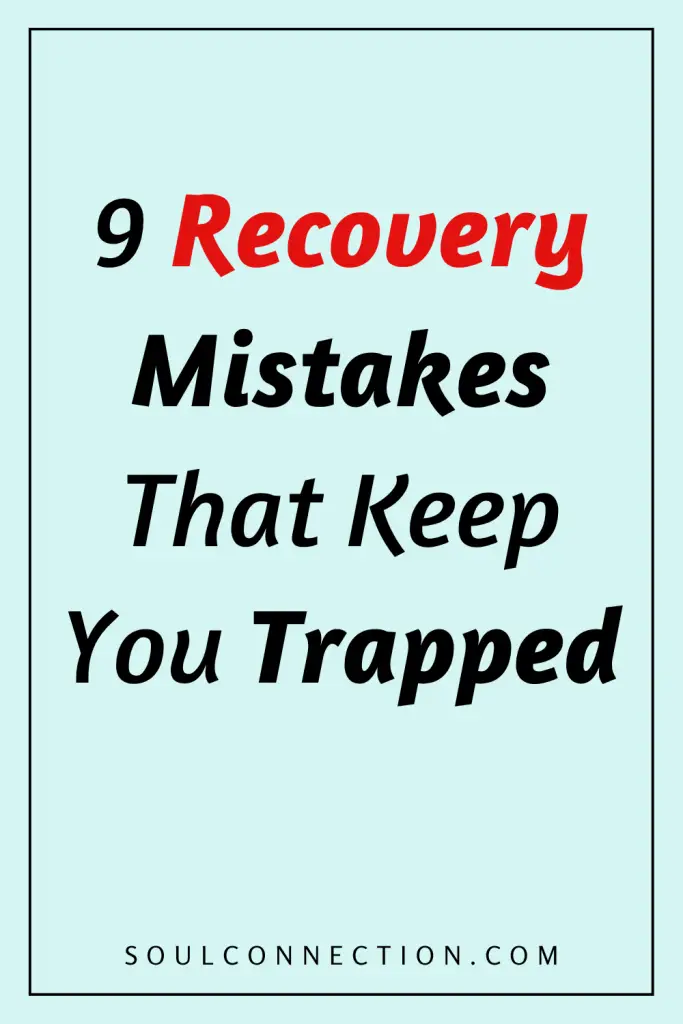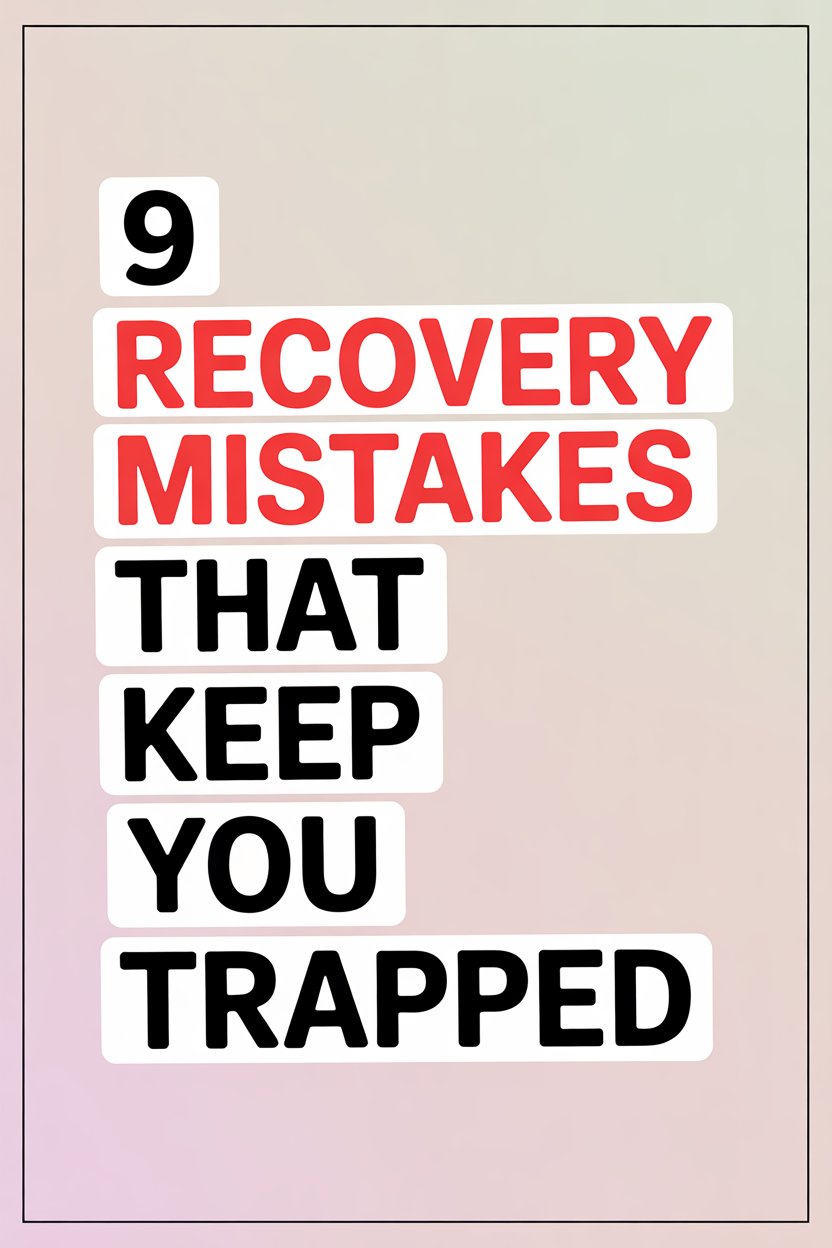Recovering from a relationship with a narcissist is a bit like trying to find your way out of IKEA without stopping for meatballs, only with more existential dread and fewer flat-pack allen wrenches.
Freedom is possible, but certain mistakes can keep you circling the same emotional aisles.
Let’s highlight the biggest pitfalls that turn recovery into an endless round of déjà vu.
1. Ignoring Your Own Feelings
Narcissists are masters at convincing you your feelings are as useful as a chocolate teapot. Once they’re gone, it’s tempting to keep shoving your emotions into a metaphorical junk drawer.
“If I don’t look at it, it’ll go away,” you might tell yourself, sipping tepid wine and binge-watching reality TV.
Bad news: Those feelings are not going anywhere until given a little attention. Unacknowledged pain festers.
Healing starts with admitting you’re hurt, angry, confused, or just furiously Googling “how to get over someone who thinks they’re God’s gift.”
Grant yourself permission to feel, or expect those feelings to keep turning up like an unwelcome house guest.
2. Jumping Into Another Relationship Immediately
Ah, the rebound. Sometimes it’s just a harmless detour, like eating a dodgy kebab after a night out. Other times, it’s more like eating six dodgy kebabs and wondering why you’re now regretting life.
Jumping straight into someone else’s arms offers the illusion of moving on, but it’s more often a distraction from the painful work of rebuilding yourself. Healing requires time alone with your wobbly bits—your doubts, insecurities, and vulnerabilities.
Rushing into a new romance before cleaning out the old relationship’s skeletons often means dragging a whole haunted house into your next adventure.
3. Seeking Closure from the Narcissist
If you’re waiting for an apology or genuine closure from a narcissist, you might as well wait for pigs to develop a comprehensive public transport system.
Narcissists rarely own up. They rewrite history. They gaslight. They give you “closure” that’s just another mind game. Chasing their validation or explanation is like playing fetch with someone who’s thrown the stick off a cliff.
Closure comes from you—processing the loss, accepting their limitations, and deciding you don’t need their stamp of approval to move on.
4. Over-Rationalizing Their Behavior
“He didn’t mean it.” “She was just stressed.” “Maybe if I’d communicated better…”
Sound familiar? Turning yourself into a pretzel trying to justify every cruel, manipulative, or downright bizarre action only keeps you tangled in their web.
Excusing their behavior doesn’t make it less damaging; it only makes you doubt yourself more.
The harsh truth? Some actions are inexcusable. Maybe their childhood was hard. Maybe their boss is a nightmare. Still doesn’t give them a license for emotional arson.
5. Staying in Contact “Just to Be Friends”
This one’s a classic. You tell yourself you’re being mature. Civilized. Maybe even “winning” because you’re not the angry ex burning their photos.
But narcissists love a door left ajar. If you leave even a crack, they’ll push through, hoovering up your energy and attention with the enthusiasm of a Labrador faced with a dropped sausage.
Genuine friendship after narcissistic abuse is about as likely as finding a unicorn in your backyard—and twice as messy if attempted.
Protect your peace. Block, mute, delete, hide. It’s not petty. It’s survival.
6. Blaming Yourself for the Whole Circus
People who leave narcissists have a PhD in self-blame. “If only I’d done X differently. If only I’d seen the signs sooner.” Hindsight is a cruel companion.
Sure, self-reflection is healthy. But flagellating yourself for someone else’s choices? That’s a trap. Narcissists are experts at projecting blame, so it’s no surprise if you’ve internalized their voice.
Time to replace that inner critic with someone who sounds more like a supportive mate after a breakup—cup of tea in hand, ready to remind you you’re not actually the villain here.
7. Isolating Yourself from Support
The aftermath of narcissistic abuse can leave you feeling like you’ve just run a marathon in stilettos—exhausted, wobbly, and in desperate need of a blister plaster.
The temptation is to isolate. To hide. To “get it together” before facing friends and family.
Resist. Healing thrives on connection. Real support—friends, a therapist, the woman at the coffee shop who doesn’t ask why your mascara is halfway down your face—reminds you that you’re not alone.
Isolation only feeds shame, and shame is a narcissist’s favorite parting gift.
8. Comparing Your Timeline to Everyone Else’s
Ever scroll through social media and wonder how everyone else seems to bounce back with fresh haircuts and inspirational quotes? Don’t buy it.
Recovery isn’t a competition. There is no medal for “Shortest Time to Emotional Stability.”
Some people find their footing quickly; others take ages. Neither is wrong. Measuring your journey with someone else’s ruler only breeds self-doubt.
Progress is messy, non-linear, and deeply personal. No one gets a prize for pretending to be “over it” before they really are.
9. Expecting to Never Struggle Again
Recovery isn’t a one-way street lined with enlightenment and artisanal lattes. Good days come. So do bad ones—with flashbacks, triggers, or the urge to send a midnight text that reads, “Why?”
Stumbles are part of the process, not proof you’re failing. Expecting perfection in healing only sets you up for disappointment. Celebrate the wins, learn from the setbacks, and keep moving—preferably in comfortable shoes.
Getting Unstuck: The Road Ahead
Mistakes on the road to recovery are practically a rite of passage—like dodgy haircuts in your teens or that time you thought bangs were a good idea. Each misstep is a lesson, not a life sentence.
Grant yourself permission to heal at your own pace. Seek out real, judgment-free support. When in doubt, remember: escaping a narcissist is an act of courage.
Staying free? That’s the everyday magic you create, one honest, messy, and gloriously imperfect step at a time.


